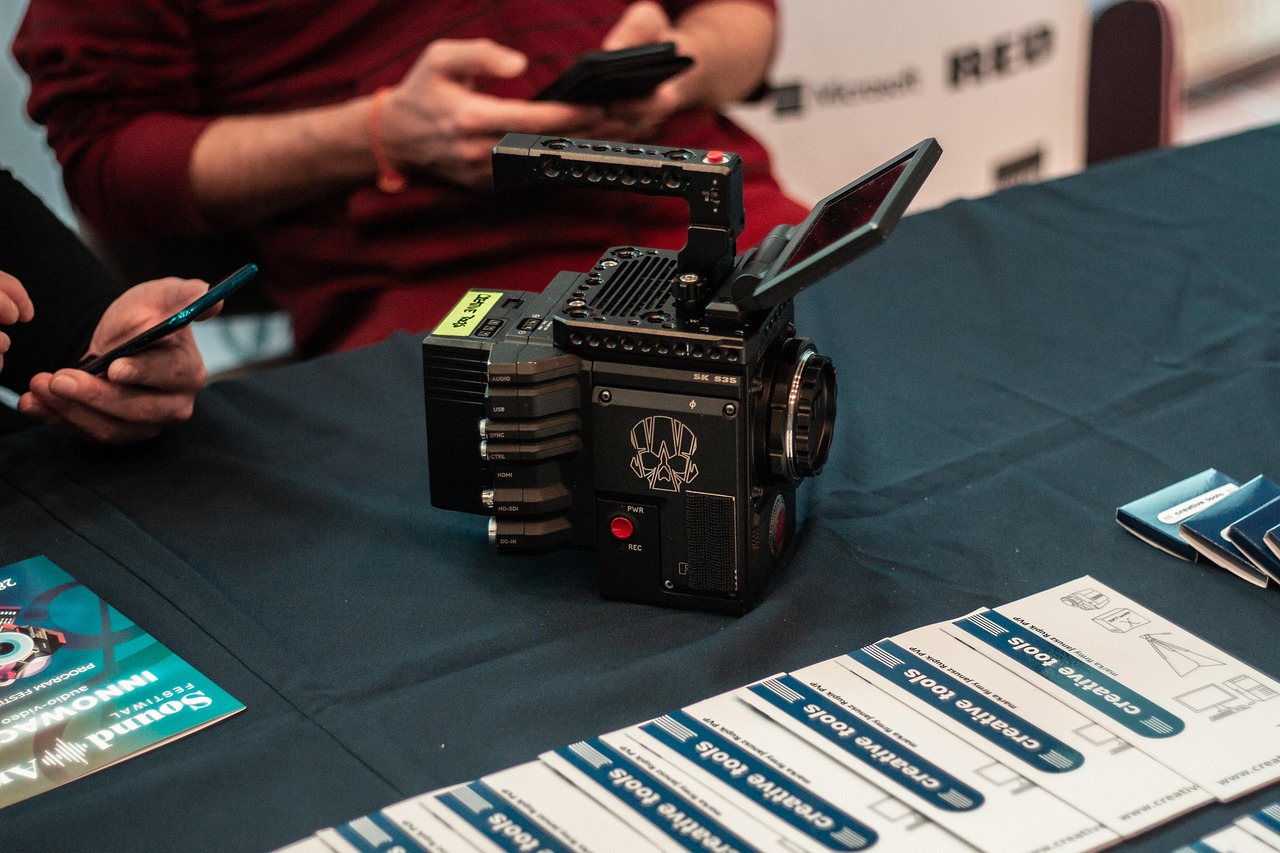This article delves into the latest changes and updates from the West Bengal Board of Primary Education (WBBPE). It offers essential insights for students, parents, and educators to effectively navigate the evolving educational landscape.
Overview of the West Bengal Board of Primary Education
The WBBPE is responsible for overseeing primary education in West Bengal, ensuring that quality education is accessible to all students. Understanding the board’s role is crucial for all stakeholders involved in the educational process.
Recent Policy Changes in Primary Education
Recent policy updates have significantly reshaped the educational framework in West Bengal. These changes aim to enhance learning outcomes and adapt to the needs of contemporary education.
- Introduction of New Curriculum Frameworks: The new curriculum emphasizes holistic education, fostering critical thinking and creativity among students.
- Impact on Teaching Methodologies: Innovative teaching methods are encouraged, creating an interactive and student-centered learning environment.
- Integration of Technology in Education: Technology is integrated into the curriculum to improve digital literacy, preparing students for a tech-driven future.
Assessment and Evaluation Changes
The WBBPE has shifted its focus towards continuous assessment rather than traditional examinations, allowing for a more comprehensive evaluation of student performance.
Teacher Training and Professional Development
To implement these new policies effectively, ongoing professional development for teachers is essential. The WBBPE emphasizes training programs to equip educators with modern teaching skills.
- Workshops and Seminars for Educators: Regular workshops help teachers stay updated on best practices and curriculum changes.
- Collaboration with Educational Institutions: Partnerships with universities support teacher training initiatives and foster continuous learning.
Parental Involvement in Education
Encouraging parental involvement is vital for student success. The WBBPE promotes initiatives that engage parents in the educational process.
- Programs to Enhance Parent-Teacher Communication: These initiatives aim to build strong partnerships between parents and teachers.
- Workshops for Parents: Workshops provide insights into the educational system, equipping parents to support their children’s learning.
Future Directions for the West Bengal Board of Primary Education
Looking ahead, the WBBPE plans further reforms aimed at enhancing educational quality and accessibility for all students.
- Focus on Inclusive Education: The board aims to cater to diverse learner needs, ensuring equal access to quality education for all.
- Adapting to Global Educational Standards: Aligning with international standards is crucial for preparing students to compete globally.
In conclusion, the West Bengal Board of Primary Education is committed to continuously improving the educational landscape. By embracing innovative practices and fostering collaboration among stakeholders, the board aims to ensure that every child receives a quality education.

Overview of the West Bengal Board of Primary Education
The West Bengal Board of Primary Education (WBBPE) plays a pivotal role in shaping the future of primary education in West Bengal. Established to ensure a structured and efficient educational framework, the WBBPE is responsible for the administration, regulation, and development of primary schools across the state. Its primary objective is to deliver quality education that meets the diverse needs of students while fostering an environment conducive to learning.
Understanding the WBBPE’s functions is essential for various stakeholders, including students, parents, and educators. The board not only oversees curriculum implementation but also sets guidelines for teacher training and assessment methods. This comprehensive approach ensures that educational standards are maintained and that all children have access to quality learning experiences.
Recent initiatives by the WBBPE have focused on enhancing educational quality through innovative teaching strategies and the integration of technology in classrooms. By adapting to contemporary educational needs, the board aims to equip students with the skills necessary for success in a rapidly changing world.
- Quality Assurance: The WBBPE implements regular evaluations and assessments to maintain educational standards.
- Curriculum Development: Continuous updates to the curriculum ensure relevance and effectiveness in teaching.
- Teacher Training: Professional development programs are essential for equipping educators with modern teaching methodologies.
In conclusion, the West Bengal Board of Primary Education is a cornerstone of the state’s educational landscape. Its commitment to quality education and continuous improvement is vital for the holistic development of students, making it imperative for all stakeholders to stay informed about its policies and initiatives.

Recent Policy Changes in Primary Education
The educational landscape in West Bengal has recently undergone significant transformations, driven by a series of policy updates aimed at improving the primary education framework. These changes are designed to not only enhance learning outcomes but also to ensure that the education system is aligned with contemporary needs and global standards.
Key Objectives of the Policy Updates
- Enhancing Learning Outcomes: The primary goal of these updates is to improve the quality of education, ensuring that students acquire essential skills and knowledge.
- Adapting to Modern Educational Needs: The policies aim to make education more relevant by integrating current technological advancements and pedagogical practices.
- Fostering Inclusivity: A focus on inclusive education has been emphasized, ensuring that all children, regardless of their background, have access to quality learning opportunities.
Introduction of Innovative Curriculum Frameworks
The new curriculum frameworks prioritize a holistic approach to education. This includes a greater emphasis on critical thinking, creativity, and problem-solving skills, equipping students to tackle future challenges effectively.
Impact on Teaching Methodologies
With the introduction of these frameworks, teaching methodologies are shifting towards more interactive and student-centered approaches. This encourages active participation from students, making learning more engaging and effective.
Technological Integration in Education
One of the standout features of the recent policy changes is the integration of technology into the curriculum. This initiative aims to enhance digital literacy among students, preparing them for a technology-driven world.
Assessment and Evaluation Reforms
The assessment landscape is also changing, with a move towards continuous assessment rather than relying solely on traditional examinations. This allows for a more comprehensive evaluation of student performance and progress.
Conclusion
In summary, the recent policy changes in primary education in West Bengal signify a commitment to improving educational quality and accessibility. By focusing on innovative curricula, inclusive practices, and technological integration, the West Bengal Board of Primary Education is laying a strong foundation for the future of education in the state.
Introduction of New Curriculum Frameworks
The recent marks a significant shift in educational philosophy, focusing on holistic education. This approach aims to nurture not only academic skills but also the critical thinking and creativity necessary for students to thrive in an ever-evolving world.
The new frameworks are designed with the understanding that today’s students will face challenges that require more than rote memorization. Instead, they will need to be equipped with the ability to analyze information critically, solve complex problems, and think creatively. This paradigm shift is crucial for preparing students for future challenges in various fields, from technology to the arts.
To effectively implement these frameworks, educational institutions are encouraged to adopt innovative teaching methodologies. This includes a shift towards project-based learning, where students engage in real-world projects that promote collaboration and hands-on experience. Such methodologies not only enhance student engagement but also foster a deeper understanding of the subject matter.
Additionally, the integration of technology into the curriculum plays a pivotal role in this transformation. By incorporating digital tools and resources, educators can create a more interactive learning environment that caters to diverse learning styles. This not only enhances digital literacy among students but also prepares them for a technology-driven future.
In conclusion, the introduction of new curriculum frameworks is a vital step towards a more comprehensive educational experience. By focusing on holistic education, critical thinking, and creativity, these frameworks aim to equip students with the skills they need to succeed in a rapidly changing world. As educators adapt to these changes, the emphasis on innovative teaching and technology integration will undoubtedly play a crucial role in shaping future generations.
Impact on Teaching Methodologies
In recent years, the educational landscape has undergone significant transformations, particularly with the introduction of new curriculum frameworks. These frameworks are not just a set of guidelines; they represent a paradigm shift in how education is delivered, focusing on innovative teaching methodologies that actively engage students. This approach fosters an interactive and student-centered learning environment, which is essential for maximizing student potential.
The traditional lecture-based teaching model is giving way to techniques that prioritize student participation and collaboration. For instance, project-based learning encourages students to work together on real-world problems, applying their knowledge in practical settings. This not only enhances their critical thinking skills but also promotes teamwork and communication.
Another innovative method is the use of flipped classrooms, where students learn new content at home, often through videos or online resources, and then engage in hands-on activities during class time. This model allows teachers to provide personalized support, addressing individual student needs more effectively.
Moreover, the integration of technology plays a crucial role in modern teaching methodologies. Tools such as interactive whiteboards, educational apps, and online collaboration platforms create dynamic learning experiences that cater to diverse learning styles. This technology-driven approach not only makes learning more engaging but also prepares students for a future where digital literacy is paramount.
Furthermore, the emphasis on formative assessment encourages ongoing feedback rather than relying solely on high-stakes testing. This continuous evaluation helps teachers identify areas where students may struggle, allowing for timely interventions and support.
In conclusion, the shift towards innovative teaching methodologies driven by new curriculum frameworks is reshaping the educational experience. By fostering an interactive learning environment and leveraging technology, educators can better engage students, ultimately leading to improved learning outcomes and a more prepared generation of learners.
Integration of Technology in Education
The has become a pivotal aspect of modern learning environments. As educators strive to prepare students for a technology-driven world, it is essential to understand how this integration enhances digital literacy and equips learners with necessary skills.
In recent years, educational institutions have increasingly adopted various technological tools and platforms. This shift not only makes learning more engaging but also helps students develop critical skills for their future careers. Here are some key points regarding the integration of technology in the curriculum:
- Enhanced Learning Experiences: Technology facilitates interactive learning through multimedia resources, such as videos, simulations, and educational games, making complex concepts easier to grasp.
- Accessibility and Flexibility: Online resources and digital platforms allow students to access materials anytime and anywhere, catering to diverse learning styles and paces.
- Collaboration Opportunities: Tools like Google Classroom and Microsoft Teams promote collaboration among students, enabling them to work together on projects regardless of their physical location.
- Preparation for the Future: By integrating technology into the curriculum, students become adept at using digital tools, preparing them for the demands of the modern workforce.
Moreover, teacher training programs are essential to ensure that educators are equipped to effectively utilize these technologies in their teaching practices. Continuous professional development helps teachers stay updated on the latest technological advancements and pedagogical strategies.
In conclusion, the not only enhances digital literacy but also prepares students for a rapidly evolving world. As we move forward, it is crucial to embrace these changes and foster an educational environment that promotes innovation and creativity.
Assessment and Evaluation Changes
have become a focal point in the educational landscape, particularly within the West Bengal Board of Primary Education. This shift is driven by the need for a more dynamic and inclusive approach to student assessment, moving away from traditional examination methods.
Historically, examinations were the primary means of evaluating student performance, often leading to a narrow focus on rote memorization. However, the recent changes emphasize continuous assessment, which allows for a more holistic evaluation of a student’s abilities and progress. This method not only assesses knowledge retention but also considers critical thinking skills, creativity, and practical application of knowledge.
- Benefits of Continuous Assessment:
- Encourages ongoing learning and improvement.
- Reduces exam-related stress for students.
- Provides timely feedback to enhance learning outcomes.
- Diverse Assessment Methods:
- Project-based assessments.
- Peer evaluations and self-assessments.
- Regular quizzes and interactive activities.
The integration of technology in assessment practices also plays a crucial role. Digital tools and platforms facilitate real-time feedback and enable educators to track student progress more effectively. This technological advancement aligns with the modern educational framework’s goal of fostering digital literacy among students.
In conclusion, the shift towards continuous assessment and diverse evaluation methods represents a significant evolution in educational practices. By embracing these changes, the West Bengal Board of Primary Education aims to create a more inclusive and effective learning environment that prepares students for the challenges of the future.

Teacher Training and Professional Development
plays a pivotal role in enhancing the quality of education provided to students. The West Bengal Board of Primary Education (WBBPE) recognizes that ongoing training is essential for teachers to effectively implement new policies and adapt to the ever-evolving educational landscape.
In today’s fast-paced world, teachers must be equipped with modern teaching skills to cater to diverse learning needs. The WBBPE emphasizes the importance of comprehensive training programs that not only focus on the curriculum but also on innovative teaching methodologies. These programs are designed to empower educators with the tools they need to foster an engaging learning environment.
To ensure that teachers are well-prepared, the WBBPE organizes regular workshops and seminars. These events provide opportunities for educators to stay updated on the latest best practices, curriculum changes, and effective teaching strategies. By participating in these professional development activities, teachers can enhance their classroom effectiveness and improve student outcomes.
Moreover, the WBBPE actively promotes collaboration with educational institutions. This partnership supports teacher training initiatives and fosters a culture of continuous learning. By working together, schools and universities can create tailored programs that address the specific needs of educators, ultimately benefiting students.
In conclusion, the commitment of the WBBPE to ongoing professional development is crucial for the success of both teachers and students. By investing in training programs and fostering collaboration, the board is paving the way for a brighter educational future. As the landscape of education continues to change, the emphasis on teacher training will remain a key factor in achieving quality education for all.
Workshops and Seminars for Educators
In the ever-evolving landscape of education, professional development for teachers is crucial to ensure that they are equipped with the latest knowledge and skills. The West Bengal Board of Primary Education (WBBPE) recognizes this need and organizes regular workshops and seminars aimed at enhancing the capabilities of educators. These sessions focus on a variety of essential topics that are vital for improving classroom effectiveness.
- Best Practices in Teaching: Workshops are designed to share effective teaching methodologies that have shown positive outcomes in various educational settings. Educators learn how to implement these practices in their classrooms, fostering a more engaging learning environment.
- Curriculum Changes: With the introduction of new curriculum frameworks, it is imperative that teachers stay updated. Seminars provide insights into the latest curriculum changes, enabling educators to align their teaching strategies accordingly.
- Innovative Teaching Strategies: The seminars also focus on innovative teaching strategies, including the use of technology and interactive learning techniques. This approach encourages teachers to think creatively and adapt to the diverse needs of their students.
- Peer Collaboration: These workshops foster an environment of collaboration among educators. Teachers have the opportunity to share experiences, discuss challenges, and develop solutions collectively.
Moreover, the WBBPE collaborates with various educational institutions to enhance the quality of these workshops. This partnership ensures that the content delivered is not only relevant but also backed by research and expert insights. The outcome of these initiatives is a more informed and capable teaching workforce, ultimately leading to improved student outcomes.
In conclusion, the ongoing commitment to teacher training through workshops and seminars is a testament to the WBBPE’s dedication to quality education. By investing in professional development, the board is paving the way for a brighter future in primary education.
Collaboration with Educational Institutions
plays a crucial role in enhancing teacher training initiatives. By partnering with universities and other educational organizations, the West Bengal Board of Primary Education (WBBPE) creates a framework that encourages continuous learning and fosters professional growth among educators.
These collaborations enable educators to access the latest research and pedagogical strategies, ensuring they remain at the forefront of educational advancements. Through joint programs, teachers can participate in workshops, seminars, and research projects that emphasize innovative teaching methodologies and effective classroom management techniques.
In addition, partnerships with universities facilitate the development of specialized training programs tailored to meet the needs of teachers in the region. Such programs often include:
- Curriculum Development: Collaborating with academic experts to design curricula that are relevant and engaging.
- Technology Integration: Training teachers on how to effectively incorporate technology into their teaching practices.
- Assessment Strategies: Introducing new assessment methods that focus on student-centered learning and continuous evaluation.
Moreover, these collaborations create a platform for teachers to share best practices and learn from one another. By fostering a culture of peer learning, educators can enhance their skills and adapt to the evolving educational landscape.
The impact of such initiatives extends beyond teacher development; it also significantly enhances student learning experiences. When teachers are well-equipped with the latest knowledge and skills, they can better engage their students and improve overall educational outcomes.
In conclusion, the collaboration between the WBBPE and educational institutions is vital for the ongoing professional development of teachers. By investing in their growth, we are ultimately investing in the future of education in West Bengal, ensuring a brighter tomorrow for both educators and students alike.

Parental Involvement in Education
In today’s educational landscape, parental involvement plays a crucial role in ensuring student success. The West Bengal Board of Primary Education (WBBPE) recognizes this significance and actively promotes initiatives designed to engage parents in the educational process. By fostering a supportive learning environment at home, parents can significantly enhance their children’s academic performance and overall well-being.
Research indicates that when parents are involved in their children’s education, students tend to achieve higher grades, have better attendance records, and exhibit improved behavior in school. This involvement can take various forms, including attending school meetings, volunteering for school events, and communicating regularly with teachers.
To facilitate this engagement, the WBBPE has launched several programs aimed at enhancing parent-teacher communication. These initiatives not only keep parents informed about their children’s progress but also encourage them to participate actively in school activities. For instance, regular newsletters and parent-teacher conferences provide platforms for dialogue, allowing parents to voice their concerns and share insights about their children’s learning experiences.
Additionally, the WBBPE organizes workshops for parents that provide valuable information about the educational system. These workshops equip parents with the tools necessary to support their children’s learning journey effectively. Topics covered include understanding the curriculum, effective study techniques, and strategies for fostering a positive learning environment at home.
In conclusion, the role of parents in education cannot be overstated. The initiatives promoted by the WBBPE aim to strengthen the partnership between parents and educators, ultimately leading to a more enriching educational experience for students. By working together, we can create a nurturing environment that supports children’s academic and personal growth.
Programs to Enhance Parent-Teacher Communication
Effective communication between parents and teachers is essential for fostering a supportive educational environment. Programs aimed at enhancing this communication serve as a bridge, facilitating a strong partnership that is vital for the success of students. These initiatives not only keep parents informed but also actively involve them in their children’s educational journey.
One of the primary goals of these programs is to create an atmosphere where parents feel comfortable discussing their children’s progress and challenges. Regular updates through newsletters, emails, and parent-teacher meetings ensure that parents are aware of classroom activities and academic expectations. This transparency helps in building trust and encourages parents to take an active role in their children’s education.
- Workshops and Training Sessions: Many schools organize workshops that equip parents with the skills and knowledge necessary to support their children’s learning at home. These sessions often cover topics such as effective study techniques, understanding the curriculum, and strategies for fostering a positive learning environment.
- Parent-Teacher Conferences: Regularly scheduled conferences provide a platform for parents and teachers to discuss student performance in detail. These meetings are crucial for identifying areas where students may need additional support and for celebrating their achievements.
- Feedback Mechanisms: Programs that incorporate feedback mechanisms allow parents to voice their concerns and suggestions. This two-way communication fosters a sense of community and collaboration between parents and educators.
Furthermore, utilizing technology can significantly enhance parent-teacher communication. Schools can implement platforms that allow for real-time updates on student progress, attendance, and assignments. This not only keeps parents informed but also encourages them to engage more deeply with their child’s education.
In conclusion, enhancing communication between parents and teachers is a crucial step in building a strong educational foundation for students. By implementing effective programs and utilizing technology, schools can foster a collaborative environment that benefits everyone involved in the child’s educational journey.
Workshops for Parents
In today’s rapidly evolving educational landscape, parental involvement has become increasingly crucial in supporting children’s academic success. Recognizing this need, various educational institutions are organizing workshops specifically designed for parents. These workshops aim to provide valuable insights into the educational system, empowering parents with the necessary tools to effectively support their children’s learning journey.
These workshops cover a wide range of topics, including:
- Understanding the Curriculum: Parents gain a comprehensive overview of the curriculum and educational standards, enabling them to better assist their children with homework and projects.
- Effective Communication Strategies: Workshops teach parents how to communicate effectively with teachers, fostering a strong partnership that enhances the educational experience.
- Supporting Learning at Home: Parents learn practical techniques to create a conducive learning environment at home, including study habits and time management skills.
- Emotional and Social Support: The workshops also address the emotional and social aspects of learning, equipping parents with strategies to nurture their children’s confidence and resilience.
Moreover, these sessions often include interactive activities that encourage parents to engage with the material actively. By participating in group discussions and role-playing scenarios, parents can share experiences and learn from one another.
In conclusion, workshops designed for parents are an invaluable resource in bridging the gap between home and school. By equipping parents with knowledge and tools, these workshops not only enhance parental involvement but also contribute significantly to children’s academic achievements. As educational systems continue to evolve, the role of parents remains a cornerstone in fostering a supportive and effective learning environment.

Future Directions for the West Bengal Board of Primary Education
As the educational landscape continues to evolve, the West Bengal Board of Primary Education (WBBPE) is committed to implementing a series of transformative reforms. These initiatives aim to enhance both educational quality and accessibility, ensuring that every child in the state receives a well-rounded education.
- Focus on Inclusive Education: One of the primary objectives of the WBBPE is to foster an environment where inclusive education is prioritized. This means addressing the diverse needs of learners, including those with disabilities and from marginalized backgrounds. By creating a supportive framework, the board aims to ensure that all children have equal opportunities to succeed.
- Adapting to Global Educational Standards: In an increasingly globalized world, aligning with international educational standards is essential. The WBBPE plans to incorporate best practices from around the globe to enhance the learning experience. This alignment will not only prepare students for local challenges but also equip them to compete on a global stage.
- Integration of Technology: The board recognizes the importance of technology in modern education. Future reforms will focus on integrating digital tools and resources into the classroom. This will not only improve digital literacy among students but also make learning more engaging and interactive.
- Enhanced Teacher Training: To support these reforms, the WBBPE will invest in comprehensive teacher training programs. Ongoing professional development will empower educators to adopt new methodologies and effectively implement the updated curriculum.
- Strengthening Community Engagement: The WBBPE acknowledges that education is a collaborative effort. Future initiatives will aim to strengthen partnerships with parents and local communities, ensuring that education is a shared responsibility.
In conclusion, the West Bengal Board of Primary Education is poised to embark on a journey of significant reform. By focusing on inclusivity, global standards, technology integration, teacher training, and community engagement, the board aims to create a robust educational framework that meets the needs of every child in West Bengal.
Focus on Inclusive Education
Inclusive education is a fundamental principle that seeks to ensure that all children, regardless of their backgrounds or abilities, have the opportunity to receive a quality education. This approach recognizes the diverse needs of learners and aims to create a more equitable educational environment. By embracing inclusive practices, educational institutions can foster a sense of belonging and promote the academic and social development of every student.
One of the key aspects of inclusive education is the recognition of diversity. Children come from various cultural, linguistic, and socioeconomic backgrounds, and it is essential for schools to acknowledge and celebrate this diversity. By doing so, educators can tailor their teaching strategies to meet the unique needs of each student, thus enhancing their learning experiences.
Moreover, inclusive education involves adapting curricula and teaching methods to accommodate different learning styles. This may include the use of assistive technologies, differentiated instruction, and collaborative learning opportunities. For instance, teachers can implement group activities that encourage peer support and interaction, allowing students to learn from one another while developing essential social skills.
In addition, training and support for educators are crucial for the successful implementation of inclusive practices. Professional development programs can equip teachers with the necessary skills and knowledge to address the challenges of inclusive education effectively. This ongoing training can include workshops on culturally responsive teaching, behavioral management strategies, and the use of technology in the classroom.
Furthermore, the involvement of parents and the community plays a vital role in fostering an inclusive educational environment. Schools can engage parents through workshops and informational sessions, encouraging them to participate actively in their children’s education. Community partnerships can also enhance resources and support systems available to students and families.
In conclusion, the emphasis on inclusive education is essential for creating a fair and just educational system. By addressing diverse learner needs and ensuring equal access to quality education, we can empower all children to reach their full potential, regardless of their backgrounds.
Adapting to Global Educational Standards
In today’s interconnected world, aligning educational practices with global standards is more important than ever for the West Bengal Board of Primary Education (WBBPE). This alignment not only enhances the educational framework but also equips students with the necessary skills to thrive in a competitive international landscape.
The WBBPE recognizes that in order to foster a culture of excellence, it is imperative to integrate global best practices into local education systems. This includes adopting innovative teaching methodologies, updating curriculum frameworks, and employing modern assessment techniques that reflect international benchmarks.
- Curriculum Enhancement: The introduction of a curriculum that meets global standards ensures that students are not only knowledgeable but also capable of critical thinking and problem-solving. This prepares them for challenges beyond the classroom.
- Teacher Training: Continuous professional development for educators is essential. By training teachers in global teaching strategies, the WBBPE can ensure that they are equipped to deliver high-quality education that meets international criteria.
- Student Assessment: Shifting from traditional assessment methods to a more holistic approach aligns with global educational trends. This includes ongoing evaluations that focus on student growth and understanding rather than rote memorization.
Moreover, adapting to global educational standards fosters a sense of cultural exchange and prepares students for a diverse world. Exposure to international perspectives enhances their learning experience and broadens their horizons, making them more adaptable and open-minded.
In conclusion, the WBBPE’s commitment to aligning with global educational standards is a strategic move towards enhancing educational quality. By ensuring that students receive a world-class education, the board not only prepares them for local challenges but also empowers them to compete on an international stage, ultimately fostering a culture of excellence in education.
Frequently Asked Questions
- What is the role of the West Bengal Board of Primary Education?
The West Bengal Board of Primary Education (WBBPE) is responsible for overseeing primary education in the state. It ensures that schools provide quality education while managing the administration of educational institutions effectively.
- What are the recent changes in the curriculum framework?
The new curriculum frameworks introduced by WBBPE focus on holistic education, emphasizing critical thinking and creativity. This shift aims to better prepare students for future challenges in a rapidly changing world.
- How does the WBBPE support teacher training?
The WBBPE organizes regular workshops and seminars for educators, helping them stay updated on best practices and innovative teaching strategies. Additionally, collaboration with educational institutions enhances professional development opportunities for teachers.
- Why is parental involvement important in education?
Parental involvement is crucial for student success as it fosters a supportive learning environment. The WBBPE promotes initiatives that encourage parents to engage actively in their children’s education, strengthening the partnership between home and school.
- What future reforms are planned by the WBBPE?
The WBBPE aims to implement further reforms focusing on inclusive education and aligning with global educational standards. This approach ensures that every child, regardless of their background, has access to quality education and can compete on an international level.



























































